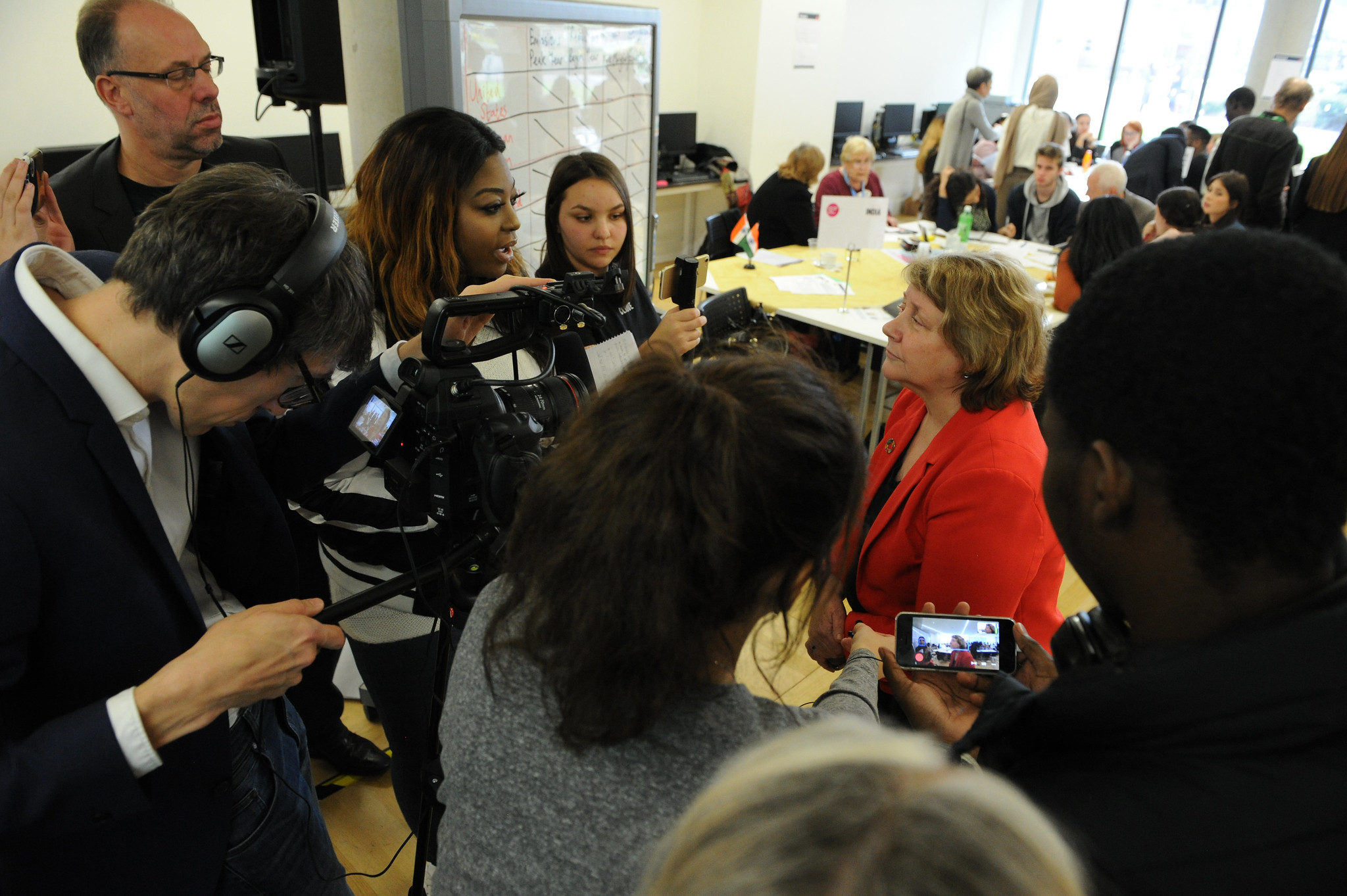Across the board approach to climate change education will prepare learners for the future

- Tags
- education
The bold, rapid action needed to tackle the climate and ecological crisis presents an unparalleled opportunity for higher education institutions, argues a working paper from a group of academic experts from the COP26 Universities Network.
Embedding climate change education into all levels of practice should be a dynamic process that responds to society’s changing circumstances, and will enable higher education institutions to better serve their core purpose of preparing learners for their roles in work and wider society, now and in the future.
Catherine Graves, co-author and postgraduate researcher at the University of Leeds adds: “This working paper outlines the building blocks needed for mainstreaming climate change education and the barriers to implementation, as well as showcasing case studies from across the UK which highlight how successful, strategic and impactful climate change education can be.”
The complexity of the challenge means all disciplines have a role to play in delivering education for the net-zero transition, and student and employer demand for climate change education reflects this need for it to be embedded in all subjects.
The path to change
The paper explores key issues that UK higher education institutions should consider, individual and institutional barriers and external enablers. It lays out four suggestions as a starting point for embedding climate change education into all university structures, and directing the talent towards the creation of a resilient and zero-carbon future:
- Building internal capacity: provision of continued professional development on climate change and paid training time for staff. Such a top down approach should enable the practical skills and knowledge to incorporate climate change education across all curricula
- Ensuring alignment and leadership: institutions should produce a strategy for their climate change education provision, including alignment with national and global climate targets and action, and links to the ‘invisible curriculum’, or values, of non-teaching operations
- Partnerships for curriculum development: with industry, central government, local government and third sector organisations to enable provision of climate change education that takes full account of spatial and temporal demands and opportunities in the UK’s net-zero transition
- Aligning assessment and outcomes: work with funding and regulatory bodies, unions, professional and awards agencies to ensure staff capacity and graduate attributes fully align with the demands of addressing climate change
A whole-sector approach
Many UK universities are already taking proactive steps to embed climate change education in their curricula, and the working paper is supported by eleven case studies showcasing a range of climate change education initiatives from UK Higher Education Institutions.
As well as following the recommendations above, the report suggests higher education institutions develop learning outcomes for climate change education that include understanding the scale, urgency, causes, consequences of and solutions for climate change, social norms as drivers, and the ability to identify routes to direct involvement in solutions.
The authors argue that with unprecedented change faced by all sectors of the economy and society, new skills and an educational focus are critical to prepare current and future generations to make decisions under uncertainty. As data emerges, flexibility is crucial as we respond to the climate and ecological crises as they intensify.
Dr Harriett Thew, co-author and UKRI COP26 Research Fellow at the University of Leeds says: “The climate crisis is impacting the communities we live in, the industries we work in, and the lives and livelihoods of others around the world. This working paper provides research insights and practitioner expertise to support Higher Education Institutions looking to mainstream climate change education, to prepare students of all subjects to respond to this complex challenge.”
About the COP26 Universities Network
Established in 2020, the COP26 Universities Network brings together more than 80 UK universities and research institutes. They aim to improve access to evidence and academic expertise for the UN Climate Summit in Glasgow for the UK Government, NGOs and the international community, working together to deliver ambitious climate change outcomes.
Further information
The full briefing is available via the COP26 UK Universities Network website.
For further details, contact the Priestley Centre.
Image by University of Bedfordshire Sustainability Forum (used with permission).
